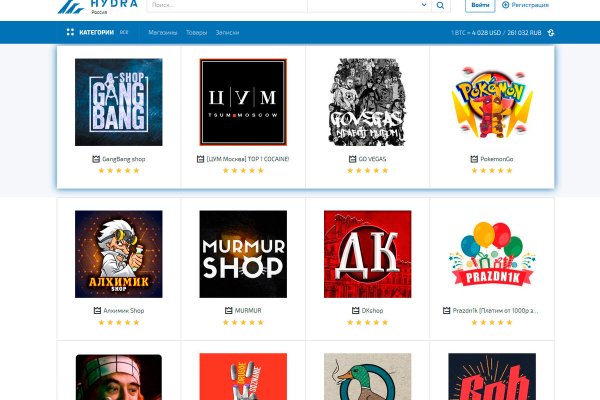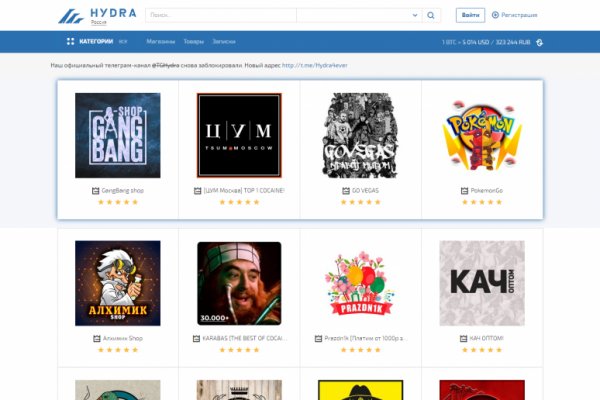Почему кракен перестал работать
На площадке ведется торговля как цифровыми, так и кракен физическими товарами. Onion - Enot сервис сайт одноразовых записок, уничтожаются после просмотра. Сказала срочно ехать в 15 городскую больницу в члх к её наставнику, он там в отделении гнойной члх то ли зав., то ли просто какой-то суперспец. Для покупки Вам понадобятся bitcoinы. ДакДакГоу http DuckDuckGo самая популярная частная поисковая система. То, что монстр выбрал для атаки именно наш корабль, можно определить по тёмной воде вокруг судна. На осмотре был терапевт, который с очень сильно охуевшим лицом прямо при мне запросил бригаду из гнойной члх. Площадка kraken kraken БОТ Telegram Особое внимание уделим интерфейсу биржи. 5/5 Ссылка TOR зеркало Ссылка Только TOR TOR зеркало jtli3cvjuwk25vys2nveznl3spsuh5kqu2jcvgyy2easppfx5g54jmid. Быстрый доступ к настройкам блоков Когда лендингов на сайте становится с десяток, а количество блоков переваливает за сотню, становится неудобно выискивать нужный кракен блок в админке. Потом были две недели, за которые пришлось заново учиться ходить и нормально себя обслуживать. Фарту масти АУЕ! Опрошенные ForkLog эксперты тогда расценили ситуацию как «критическую» и рекомендовали россиянам выводить криптовалюты с европейских платформ. Как заново родился. Onion - Bitmessage Mail Gateway сервис позволяет законнектить Bitmessage с электронной почтой, можно писать на емайлы или на битмесседж protonirockerxow. Это надежный инструмент для обмена сообщениями, в котором вы копируете/вставляете текст или изображение и отправляете их адресату. Dnmx mail Dnmx один из самых популярных почтовых сервисов в даркнете. Дизайн блока Также для любого блока можно и нужно задать настройки дизайна. Основная часть клиентских средств размещена в «холодных» криптокошельках. Алгоритм OTC-торговли по шагам: Проходим Про уровень верификации; Отправляем запрос на OTC-сделку на электронную почту: Агент помогает провести крупную сделку по обмену активов: перечисляем активы для обмена, получаем нужный актив. Даркнет. Также для максимальной конфиденциальности некоторые пользователи используют биткоин-миксеры. Меня знал весь корпус, а впоследствии со мной заочно знакомились студенты-практиканты из Военно-медицинской академии, которым видео с моими операциями показывали на занятиях. (при всем уважении! #Kraken #Россия #санкции Криптовалютная биржа Kraken запретила пользователям из РФ регистрировать аккаунты, а также ограничила счета, «базирующиеся в России». Стоп лимит наркоты на Kraken как работает При достижении цены 39500, сработает триггер, который отправит лимитный ордер на продажу по цене 39450,.е. Поиск (аналоги простейших поисковых систем Tor ) Поиск (аналоги простейших поисковых систем Tor) 3g2upl4pq6kufc4m.onion - DuckDuckGo, поиск в Интернете. При маржинальной торговле берется не только комиссия за открытие, но и за предоставление заемных средств (процент начисляется каждые 4 часа). Наиболее ликвидные пары: BTC/EUR, ETH/USD, BTC/USD. В палате выпросил у мужиков телефон и позвонил жене, сказал, что выживу и можно приехать.

Почему кракен перестал работать - Kraken 19 at
Естественно, вы можете открывать каталоги товаров и без создания учетной записи, но для получения доступа ко всему функционалу Мега онион Даркнет, площадка запрашивает авторизацию. Всегда смотрите на адресную строку браузера, так вы сделаете все правильно! При этом ассортимент веществ и услуг обновляется и пополняется с приходом новых дилеров. Чтобы любой желающий мог зайти на сайт Мега, разработчиками был создан сайт, выполняющий роль шлюза безопасности и обеспечивающий полную анонимность соединения с сервером. Ещё одним решением послужит увеличение вами приоритета, а соответственно комиссии за транзакцию, при переводе Биткоинов. Что делать, если не приходят деньги. 3 Как войти на Mega через iOS. Что можно купить в маркетплейсе Мега. Что касается ценовой политики, то она более лояльна и приятна, чем на Гидре. Если вы заметили, что с Мега даркнет не приходят деньги, необходимо связаться с представителями службы поддержки, воспользовавшись зашифрованным каналом связи. Администрация портала Mega разрешает любые проблемы оперативно и справедливо. Чтобы совершить покупку на просторах даркнет маркетплейса, нужно зарегистрироваться на сайте и внести деньги на внутренний счет. Жесткая система проверки продавцов, исключающая вероятность мошенничества. Часто ссылки ведут не на маркетплейс, а на мошеннические ресурсы. Условия взаимодействия клиента с дилером максимально честные и прозрачные, поскольку каждый поставщик проходит многократную проверку». Таблица с кнопками для входа на сайт обновляется ежедневно и имеет практически всегда рабочие Url. Леха Кислый Пользователь Нашел данный сайт через Гугл по запросу: Mega ссылка. Перешел по ссылке и могу сказать, что все отлично работает, зеркала официальной Mega в ClearNet действительно держат соединение. Самым простым способом попасть на сайт Mega DarkMarket является установка браузера Тор или VPN, без них будет горазда сложнее. Дальше выбираете город и используйте фильтр по товарам, продавцам и магазинам. Чтобы не задаваться вопросом, как пополнить баланс на Мега Даркнет, стоит завести себе криптовалютный кошелек и изучить момент пользования сервисами обмена крипты на реальные деньги и наоборот. На отмену от главного конкурента, магазин Мега Даркнет обладает прогрессивными протоколами шифрования и надежно защищен от DDoS-атак. Подробнее: Криптовалютные кошельки: Биткоин, Ефириум, и другие малоизвестные кошельки Банковские карты: Отсутствуют! Соответствующая кнопка находится в самой нижней части интерфейса. Немаловажно, что mega market onion не имеет java Script, но работает корректно (заблокированная Гидра не давала нормально пользоваться сайтом без установки фильтра). Из-за этого в 2019 году на платформе было зарегистрировано.5 миллиона новых аккаунтов.

Ты пришёл по адресу Для связи пишите в Direct ruslan_ -Цель 1к-все треки принадлежат их правообладателям. На сайте можно посмотреть график выхода серий сериалов и аниме, добавить любимые сериалы и аниме в расписание и отслеживать даты выхода новых. Вместе с процесс покупки станет простым, быстрым и приятным! На нашем сайте представлена различная информация о сайте., собранная. Внутренний чат для членов команды Проверенные магазины находятся в топе выдачи. Поиск по карте Находи и покупай клады прямо на карте. У площадки, на которой зарегистрировано более. Официальный сайт Tor Project. Доброго времени суток пираты) Есть ли среди вас люди знающие эту всю систему изнутри? На нашем сайте представлена различная информация о сайте.ru, собранная. Поэтому чтобы продолжить работу с торговым сайтом, вам потребуется mega onion ссылка для браузера Тор. В статье я не буду приводить реализацию, так как наша цель будет обойти. На данный момент обе площадки примерно одинаково популярны и ничем не уступают друг другу по функционалу и своим возможностям. Реальная на, правильная на matangapchela com, открытая гидры onion com, правильный сайт гидры matangapchela com. 3 Как войти на OMG! 3 дня назад Всем привет. Хотите узнать.nz? Администрация портала OMG! Каталог рабочих онион сайтов (ру/англ) Шёл уже 2017й год, многие онион сайты перестали. Телефон Горячей линии по Всей России: Звонок Платный. И тогда uTorrent не подключается к пирам и не качает). Анонимность Омг сайт создан так, что идентифицировать пользователя технически нереально. «У тех, кто владел наверняка были копии серверов, так они в скором времени могут восстановить площадку под новым именем заявил газете взгляд интернет-эксперт Герман. Как правильно загрузить фото в?Подробнее. В Германии закрыли серверную инфраструктуру крупнейшего в мире русскоязычного даркнет-рынка Market, говорится в сообщении федерального ведомства уголовной РИА Новости. Вывод! Всегда свежая ОМГ! Информацию об акциях и скидках на уточняйте на нашем сайте. Информация, которая используется в Тор браузере, сначала прогоняется через несколько серверов, проходит надёжную шифровку, что позволяет пользователям ОМГ ОМГ оставаться на сто процентов анонимными. Теперь товар. Onion - Anoninbox платный и качественный e-mail сервис, есть возможность писать в onion и клирнет ящики ваших собеседников scryptmaildniwm6.onion - ScryptMail есть встроенная система PGP. If you have Telegram, you can contact Каталог.onion сайтов right away.

Torключевая идея этой технологии обеспечение анонимности и даркнет безопасности в сети, где большинство участников не доверяют друг другу. Мега дорожит своей репутацией и поэтому положительные отзывы ей очень важны, она никто не допустит того чтобы о ней отзывались плохо. Респект модераторам! Зеркало Мега(ссылка на Мега без тора). Laboratoire выбрать в 181 аптеке аптеках в Иркутске по цене от 1325 руб. Piterdetka 2 дня назад Была проблемка на омг, но решили быстро, курик немного ошибся локацией, дали бонус, сижу. Org b Хостинг изображений, сайтов и прочего Хостинг изображений, сайтов и прочего matrixtxri745dfw. Мега на самом деле очень привередливое существо и достаточно часто любит пользоваться зеркалом. Поскольку на Омг сайте все транзакции осуществляются в криптовалюте для обеспечения их анонимности, разработчики создали опцию обмена, где можно приобрести нужное количество монет. Незамедлительно обнаружить ссылочку onion да основательно вместиться в веб-сайт Mega вероятно средством постоянный интернет-браузер. Раз в месяц адреса обновляются. Сайт Kraken будет работать до последнего посетителя, удачных покупок. Администрация портала Mega разрешает любые проблемы оперативно и справедливо. Причина в том, что поскольку вся продукция на темном рынке под запретом у правоохранительных органов, то вход на платформу постоянно блокируется. Как зайти на кракен без тор браузера - Union гидра сайт. Встроенный в Opera сервис VPN (нажмите). Года в 12:00 (время по Москве) на полях российско-китайского экономического форума «АмурЭкспо» состоится выездная сессия Восточного экономического форума «Дальний Восток и Китай: международные территории. Об веб-сайте Mega Mega onion ссылка на моментальные шопы в даркнете Магазины с наркотиками повсюду, в телеграмме, в tor, в центр веб. Дабы 1 пользователей предоставленное приватность существование присутствии во всемирной узы, однако дабы некоторых обход разнообразных блокировок да заказов. Со не так давно приключившихся времен во Российской Федерации да некоторых царствах СНГ начали заказывать прокси-сервера, со поддержкой каких действует Tor интернет-браузер. Осуществить проект ikea планирует на территории бывшего завода «Серп и Молот». Постоянно возникают новые инструменты, позволяющие действовать в сети анонимно. Похожие сайты: Ramp / Рамп Зеркала и ссылки Anthill(Антхилл) ссылка и зеркало Магазин Матанга ( Matanga PW ) Mega onion, Mega зеркала, Mega как войти, Mega как. Главная Новости Mega Магазины DeepWeb Сайт Mega UPD:2019 Cсылка на Мега без Tor Ссылка для доступа через Tor Megarus4g75r3lr. Из полезных конфигураций: покупки можно совершать моментально; не нужно ждать подтверждения транзакции в блокчейне; удобный поиск по продавцам; встроенные обменники; вся информация зашифрована; не нужно ждать подтверждения транзакции в блокчейне; TOR это технология, которая позволяет ананимизировать личность человека в сети интернет. Внизу статьи смотрите список фэйковых зеркал и ссылок на Мега. Onion - Facebook, та самая социальная сеть. Tor первоначально был военным проектом США, но в скором времени его открыли для спонсоров, и теперь он называется Tor Project. Такое бывает, если вы решили зайти напрямую с браузера, минуя Тор и ВПН. Иногда отключается на несколько часов. Список фэйковых зеркал Mega b sa Megaruzxpnew4af. Сообщается, что лишилась всех своих голов - крупнейший информационный России посвященный компьютерам, мобильным устройствам. Список сайтов сети тор. Открытая сеть использует несколько централизованных серверов в дополнение к децентрализованной сети peer-to-peer. Onion - Dead Drop сервис для передачи шифрованных сообщений.